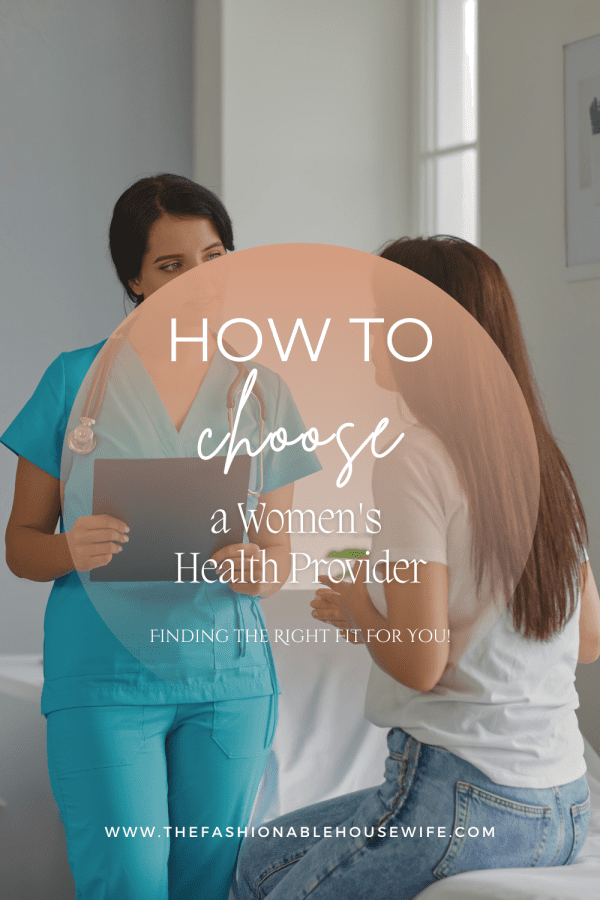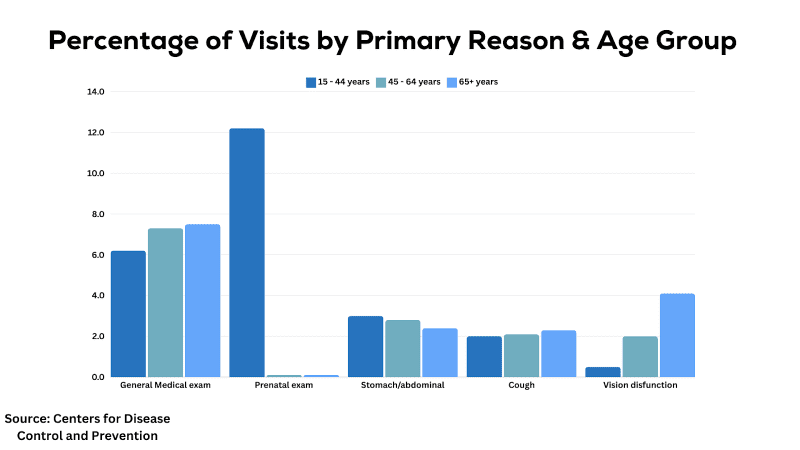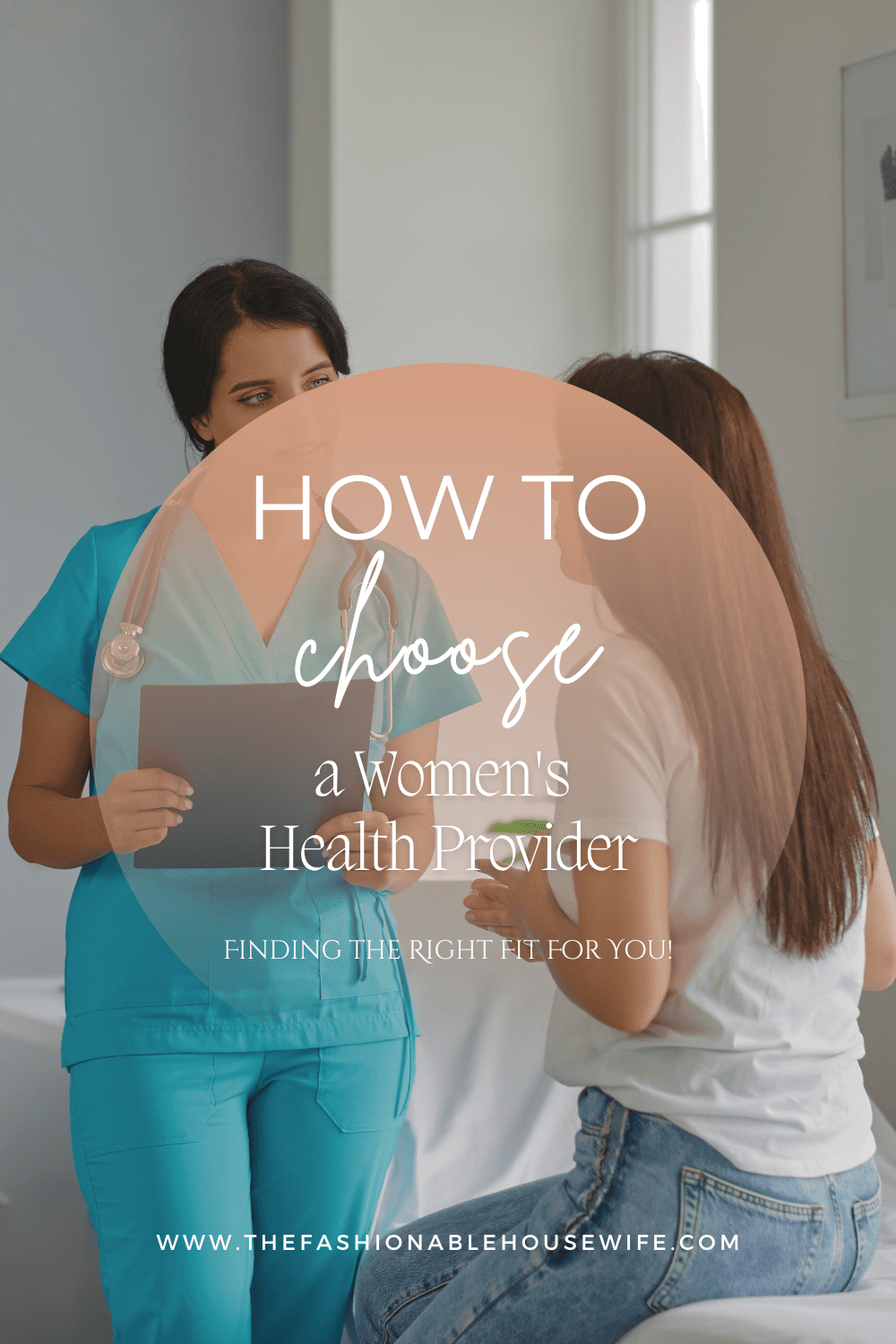Finding the Right Fit: Tips for Choosing a Women’s Health Provider

Women play a pivotal role in making healthcare decisions for themselves and others. According to a study published in the Journal of Women’s Health, 94% of women make healthcare decisions for themselves, and 59% make decisions for others such as children or aging parents. This statistic highlights the importance of choosing a provider who meets personal needs and aligns with the needs of loved ones.
With a proactive approach to preventive care and higher rates of chronic illness compared to men, it is crucial to choose the right women’s health provider.
Understanding unique health needs and finding a provider who meets them can be daunting. By breaking down the process into manageable steps, you can make informed decisions that lead to better health outcomes and greater satisfaction with care.

Understanding Her Health Needs
The first step in choosing a women’s health provider is to identify health priorities. Evaluate specific health needs such as reproductive health, general wellness, and chronic conditions. This self-awareness will help you narrow down the type of provider best suited to address your concerns.
One important consideration when evaluating potential providers is whether they use an EHR (Electronic Health Record) or EMR (Electronic Medical Record) system. As explained in this guide on EHR vs EMR, an EHR is a complete digital record of a patient’s health history, while an EMR is focused on the medical data collected by a specific provider or practice. Knowing which system a potential provider uses can give you insights into the level of coordination and information sharing across the healthcare team.
If you plan to start a family, prioritize a provider with expertise in fertility and pregnancy care. On the other hand, if you’re managing a chronic condition like endometriosis or polycystic ovary syndrome (PCOS), you’ll want a provider experienced in treating these specific issues.
It’s also essential to consider life stages as different phases from adolescence through menopause, which might impact the choice of health provider. Younger women may prioritize family planning and preventive care, while older women might focus on managing menopausal symptoms or conditions like osteoporosis.
Women’s Specific Reason for Visit by Age
As women navigate different life stages, their reasons for seeking medical care can vary significantly. According to a survey, the primary reasons for women’s visits to healthcare providers differ across age groups. This data underscores the importance of choosing a provider who aligns with current health needs and has the expertise to support you through different life stages.

By understanding these age-related trends, both providers and patients can work together to ensure that healthcare needs are met effectively and proactively throughout a woman’s lifetime.
Choosing the Right Type of Health Provider
Once you’ve identified health needs, it’s time to explore the different types of providers who can address them. The most common options include:
- Obstetricians/Gynecologists (OB/GYNs): These physicians specialize in women’s reproductive health, including pregnancy, childbirth, and treating conditions affecting the female reproductive system.
- Family Physicians: While not specialized in women’s health, family physicians are trained to provide comprehensive care, including well-woman exams, contraceptive counseling, and preventive screenings.
- Midwives and Nurse Practitioners: These healthcare professionals provide primary care, family planning services, and pregnancy care, often at a lower cost than physicians. They work collaboratively with OB/GYNs and other doctors when necessary.
The provider type you choose will depend on your specific needs and preferences. If you’re planning a pregnancy or have complex health issues, an OB/GYN might be the best fit. On the other hand, if you’re seeking general preventive care and wellness support, a family physician or nurse practitioner could be a suitable option.
Researching Potential Providers
Once you’ve narrowed down the type of provider you’re seeking, it’s time to research specific professionals in nearby localities. Here are some tips for evaluating potential providers:
- Check credentials and experience: Look for providers who are board-certified in their specialty, indicating they’ve met specific educational and training requirements.
- Read reviews and testimonials: Online reviews can provide valuable insights into a provider’s bedside manner, communication style, and overall patient satisfaction. However, it’s essential to read reviews with a critical eye and consider the source.
- Ask for recommendations: Reach out to friends, family, or other trusted sources for recommendations on providers they have had positive experiences with.
Remember, while credentials and reviews are important, finding a provider you feel comfortable with and trust is equally crucial.
Making Health Care Decisions
When it comes to making healthcare decisions, the importance of comfort and trust with a provider cannot be overstated. Feeling at ease discussing personal health issues and concerns is crucial for receiving the best possible care.
During initial visits with potential providers, pay close attention to their bedside manner, communication style, and overall approachability. Do they actively listen to concerns and involve you in the decision-making process? Or do they seem rushed or dismissive?
It’s also essential to assess the provider’s willingness to educate and empower you about health. Do they explain concepts clearly and encourage you to ask questions? A provider who prioritizes patient education can help you make more informed decisions about care.
Research shows that women who feel comfortable with their providers are more likely to schedule regular check-ups and address health concerns promptly. According to a study, effective communication between a patient and physician plays the most important role in improving health outcomes and patient satisfaction.
Don’t hesitate to keep searching if you don’t feel a connection with a potential provider. Finding the right fit is essential to ensure you receive the best possible care and have a positive healthcare experience.
Accessibility and Practical Considerations
Convenience and affordability are also important factors to consider when choosing a women’s health provider. Look for professionals whose office locations and hours align with your schedule and needs.
Additionally, check if the provider is in-network with your insurance plan to minimize out-of-pocket expenses. According to Anthem’s research, choosing an in-network provider can help ensure coverage for necessary services and help women make more informed healthcare choices.
Building a Long-Term Relationship
While finding the right provider is essential, building a long-term relationship with them is equally important. Continuity of care has been associated with higher patient satisfaction, better adherence to treatment plans, and lower rates of hospitalization.
Regular check-ups with a trusted provider can help detect health issues early and promote overall well-being. Effective communication and follow-ups are crucial in maintaining this ongoing partnership.

Conclusion
Choosing the right women’s health provider is a personal journey, but one that can profoundly impact overall well-being. By understanding your unique needs, researching potential providers, and prioritizing comfort and trust, you can find a healthcare partner to guide you through every stage of life.
Remember, health is a lifelong journey, and having the right provider by side can make all the difference. Don’t hesitate to take the time and effort to find the perfect fit – health deserves it.
If you’re ready to embark on the journey of finding the right women’s health provider, start by scheduling consultations with potential candidates in your local area. Prepare a list of questions, concerns, and preferences to discuss during these initial visits. Trust your instincts, and don’t settle until you find a provider who truly understands and prioritizes your needs.
FAQs
1. What should I consider when choosing a provider for pregnancy and childbirth?
For pregnancy and childbirth, you’ll want to consider providers who specialize in obstetrics, such as OB/GYNs or midwives. Look for professionals with experience in preferred birthing methods (e.g., natural, cesarean, or water birth) and those who align with birth plan preferences.
2. How often should I see my women’s health provider?
The frequency of visits depends on age, health status, and specific needs. Generally, it’s recommended to have an annual well-woman exam, which includes a pelvic exam, breast exam, and preventive screenings. If you have specific health concerns or are planning a pregnancy, you may need more frequent visits.
3. Can I switch providers if I am not satisfied with my care?
Absolutely! If you feel uncomfortable with a provider or dissatisfied with the care you’re receiving, you have the right to switch providers. It’s essential to find someone you can establish a trusting and open relationship with, as this can significantly impact health outcomes.

